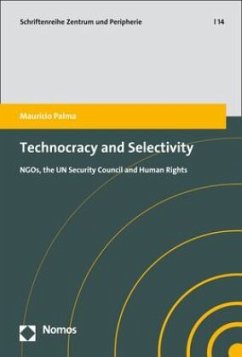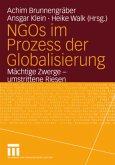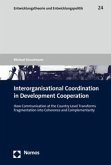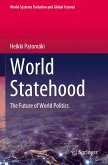By analysing the relationship between NGOs, the UNSC and human rights, this book argues that both NGOs and the UNSC use human rights semantics in a selective way in regard to the places and actors they affect. It observes knowledge and power, then, as forces that mutually affect one another, which may help to explain how global governance works. Moreover, the book explores the idea that law, aside from permeating traditional structures, can proceed upwards from the base of society towards institutional spheres. In this regard, its author proposes that the interplay between non-state actors and political institutions boosts bottom-up processes related to lawmaking and to the formation of political decisions. Considering critical problems of both NGOs and the UNSC concerning representation and responsiveness, the work asserts that the relationship between them takes place in an excluding, technocratic and arcane manner.
Bitte wählen Sie Ihr Anliegen aus.
Rechnungen
Retourenschein anfordern
Bestellstatus
Storno








